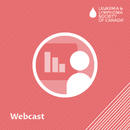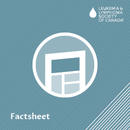Resource Library
Showing 21 to 30 of 64 results
Chronic myeloid leukemia (CML): Treatment options, minimizing side effects, 2024 Leukemia Conference
Chronic myeloid leukemia (CML) is a rare type of leukemia that can happen when cells that make the blood develop a genetic change called BCR-ABL1 (Philadelphia chromone). Dr. M. Lynn Savoie, hematologist at Tom Baker Cancer Centre in Calgary, Alberta, discusses treatment options, including hematopoiesis stem cell transplants, and ways to minimize side…
You or your loved one has been diagnosed with chronic myeloid leukemia (CML).This booklet was designed to answer some questions you may have about chronic myeloid leukemia (CML). It summarizes what CML is and its phases, as well as treatment options available in Canada and their side effects.
Learn how to care for skin, nails, hair, and mouth during and after cancer treatments.
You or your loved one has been diagnosed with a type of blood cancer. Cancer treatment can be complex, with different types of treatment options available for some blood cancers. What are they and how do they work? This fact sheet will help you Learn about the different treatment options available, Understand each type of treatment and how it can help,…
Watch this 1-hour recorded webcast by Dr. Heather Leitch as she discusses myelodysplastic syndromes (MDS), a group of cancers of the blood and bone marrow.
Dr. Leitch is a hematologist at St. Paul’s Hospital in Vancouver, Canada and Clinical Professor in the Department of Medicine, University of British Columbia. Her clinical and research interests…
Dr. Leitch is a hematologist at St. Paul’s Hospital in Vancouver, Canada and Clinical Professor in the Department of Medicine, University of British Columbia. Her clinical and research interests…
In this 1-hour recorded webcast, hematologist-oncologist at the Princess Margaret Cancer Centre in Toronto, and DLBCL researcher, Dr. John Kuruvilla, discusses diagnosis and approach to managing and treating DLBCL, the most commonly diagnosed subtype of non-Hodgkin lymphoma.
Palliative care is appropriate for anyone with a serious illness such as blood cancer - regardless of their age, stage of disease, or prognosis. Palliative care is not limited to individuals with non-curative cancer. This type of care focusing on improving your quality of life, is sometimes called holistic care or whole–person centered care.
Your treatment for cancer can cause dental and oral (mouth) complications. Complications are medical problems that happen as a result of a procedure, treatment, or illness. They affect one third of people who go through cancer treatment. Dental and oral health refer to the well-being of your entire mouth. This includes your teeth, gums, the lining of your…
Learn about Myeloma, how it is diagnosed, an overview of treatments and what happens next.
Receiving a blood cancer diagnosis can be challenging and overwhelming. Along with physical symptoms, individuals with a blood cancer diagnosis may experience serious mental health challenges such as depression, anxiety, or even post-traumatic stress disorder (PTSD).


